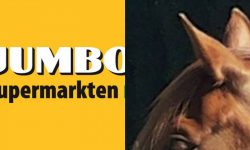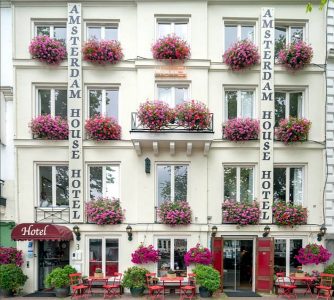Today Eyes on Animals met with the Corporate Social Responsibility Manager of Jumbo, the second largest supermarket in the Netherlands. We discussed the transport and slaughter conditions for horses in North, Central and South America that Eyes on Animals, TSB Zurich, AA USA and 3 other NGO’s, investigated. After EonA exposed the disturbing results to the Dutch media in March, Jumbo went themselves to inspect conditions at the plants in Argentina and Uruguay that were supplying them with horse meat.
Despite announcing their visit ahead of time, conditions at one of the Argentinian slaughterhouses were still so poor that Jumbo immediately put a stop to doing business with them. However, the other plant in Argentina and the one in Uruguay, which us NGO’s had not inspected, made a much better and professional impression on the Jumbo team. Jumbo wants to give the managers of these plants a chance. Jumbo has given these plants several recommendations for improvements and asked the managers to put them into place by September 2014. Jumbo argues that by remaining clients of these two “more promising” slaughterhouses, they have the potential to influence positive changes. Jumbo will however stop doing business with them if they do not make the improvements by September.
Jumbo is also taking the initiative to have Global GAP standards created for horse transport and slaughter by the end of 2014, in an aim to further raise horse-welfare standards internationally. This worldwide certification system for ‘Good Agricultural Practice’ is already used for pigs, chickens and cattle. Member producers and retailers voluntarily agree on sets of criteria for animal welfare which go beyond legal requirements. Jumbo hopes other supermarkets will join in.
Eyes on Animals congratulates Jumbo for taking these concrete steps. Their approach is serious and we understand their reasoning. Nevertheless we made it clear similar efforts were done in the past with sadly only more rules created just on paper whilst in practice, nothing changed for the animals. We also worry about the high level of corruption among the Argentinian veterinarian authorities, the condition of the livestock trucks all over the country (they do not have dividers in between each horse to avoid trampling, nor drinking water or automatic fans on board), the high number of stolen horses being slaughtered, abuse of medical substances and insufficient national animal- transport legislation. Uruguay does not even have animal-transport legislation.
We thank Jumbo for their open and constructive talk today. We have agreed to meet again in October after they return from their follow-up inspection in Argentina and Uruguay. We will also be in touch to discuss the requirements of a Global GAP standard for horses.


